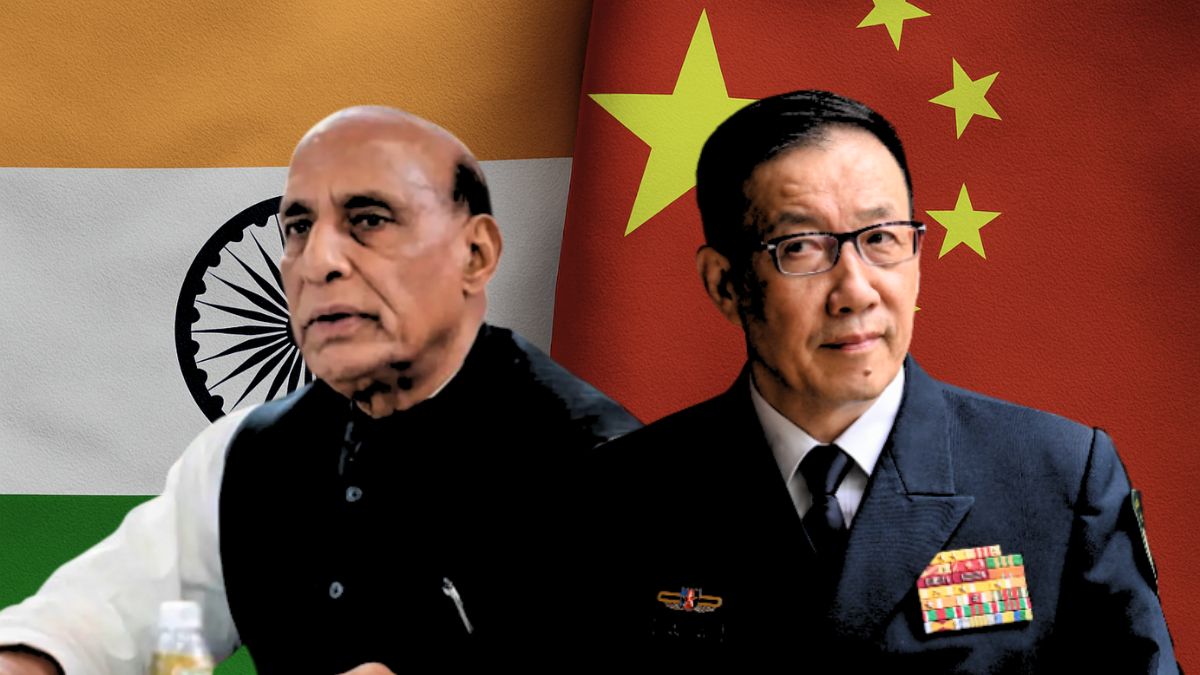Defence Minister Rajnath Singh is likely to travel to China next week to attend the Shanghai Cooperation Organisation (SCO) Defence Ministers’ Meeting, according to people familiar with the matter. If the visit is confirmed, it will mark the first visit by an Indian Defence Minister to China in 12 years, and the first such senior ministerial-level engagement since the deadly Galwan Valley clash in 2020.
The last Indian Defence Minister to visit China was AK Antony in 2013. Since then, bilateral ties have seen repeated cycles of engagement and disruption, culminating in the prolonged border standoff along the Line of Actual Control (LAC) in eastern Ladakh that began in May 2020.
Singh’s visit— if it proceeds as planned— could serve as a litmus test for the stability of recent diplomatic efforts to de-escalate tensions and rebuild trust between Asia’s two largest militaries.
What have been the key milestones in relations since last Indian defence minister’s visit to China?
2013
- July: Indian Defence Minister A.K. Antony visits China, the last such visit to date. Both sides emphasize the importance of peace along the border and agree to enhance military exchanges and cooperation.
- May: The Depsang standoff is resolved after a three-week military face-off in Ladakh.
2014
- May: Narendra Modi becomes Prime Minister of India.
- September: Chinese President Xi Jinping visits India, launching the “Closer Developmental Partnership.” However, border tensions flare as Chinese troops reportedly enter the Chumar sector during the visit.
2015
- May: PM Modi visits China, aiming to boost economic and strategic ties.
2017
- June–August: The Doklam standoff occurs when Indian troops oppose Chinese road construction in Bhutanese territory, leading to a 73-day military face-off. The crisis is resolved through diplomatic negotiations, but trust is eroded.
2018–2019
- April 2018: The first informal summit between Modi and Xi is held in Wuhan, China, to reset relations post-Doklam.
- October 2019: Second informal summit in Mamallapuram, India. Both leaders discuss managing differences and expanding cooperation. Bilateral trade reaches $92 billion by 2019.
2020
- June: The Galwan Valley clash in eastern Ladakh leads to the death of 20 Indian soldiers and an undisclosed number of Chinese soldiers—the deadliest incident since 1967. China deploys mass troops along the Line of Actual Control (LAC), violating prior agreements. India bans Chinese apps and restricts Chinese investments in response.
- Aftermath: India strengthens ties with the Quad (US, Japan, Australia) and insists on restoring the pre-2020 LAC status quo before normalizing relations.
2021–2023
- Continued Standoff: Multiple rounds of military and diplomatic talks are held, but disengagement is slow and partial. Bilateral ties remain tense with limited high-level engagement.
2024
- Late 2024: A breakthrough agreement is reached on troop withdrawals from Depsang and Demchok, signaling progress on border disengagement.
- October: Modi and Xi meet on the sidelines of the BRICS Kazan summit—their first formal meeting in five years. Both sides signal willingness to reset ties.
2025
- January: India and China agree to resume direct air services after nearly five years and work on resolving trade and economic differences.
- Early 2025: The 23rd Special Representatives’ meeting and Vice Minister-Foreign Secretary Meeting are held in Beijing, focusing on border issues and practical cooperation.
- Summer 2025: Agreement to resume data-sharing on rivers and restart the Kailash Mansarovar Yatra, indicating confidence-building and trust restoration measures
Why Does this visit matter?
Singh’s potential visit comes at a time when India and China are exploring ways to stabilize relations through structured multilateral platforms like the SCO, of which both are key members. China is currently the rotating chair of the organisation.
The SCO, while not a military alliance, provides a neutral diplomatic arena for bilateral sideline talks. If Rajnath Singh travels to China, it would likely include a bilateral interaction with his Chinese counterpart Dong Jun, offering an opportunity to:
- Discuss military CBMs (Confidence-Building Measures),
- Review progress on LAC disengagement,
- Assess the situation along remaining friction points, and
- Signal deeper re-engagement without compromising on national security positions.
The timing is also significant. With China pressing ahead with its strategic ambitions in the Indo-Pacific, and India reinforcing ties with the Quad, Singh’s visit could either open a window for risk reduction or harden negotiating positions further if mutual expectations aren’t met.
For India, attending the SCO meeting in Beijing represents a carefully calibrated diplomatic step—neither a full endorsement of normalisation nor a rejection of engagement. Rather, it reflects India’s longstanding strategic posture: to engage assertively, with clarity on red lines and national interest.
Should Singh make the trip, it would mark not just a return to diplomatic normalcy, but also a test of China’s willingness to address Indian concerns with transparency and reciprocity.
